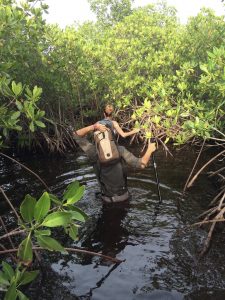By: Erin McCready
The wise man doesn’t give the right answers, he poses the right questions.
-Claude Levi-Strauss
What do we want to learn? How can we both differentiate ourselves from and build upon the research that has come before? Who should we meet with? In what language should we communicate? What does the community care about? Are there imbalances in the power and influence of some and how can we overcome that? What is missing? What else?
If we used questions as the marker for wisdom, Team Honduras would come bearing gifts of frankincense and myrrh.
 As Dr. Suzanne Kent and Cheryl Smarr-Foster from Colorado State University, and Dr. Keri Brondo and Daryl Stephens from the University of Memphis prepare to travel to Honduras to meet with the in-country based members of the team and begin the onsite portion of our project, I have been reflecting on my experience as a Cohort 8 Fellow thus far, and what I have been most impressed with are the questions; their number, their thoughtfulness, their ability to unlock a train of thought or an area of exploration that hadn’t yet been considered.
As Dr. Suzanne Kent and Cheryl Smarr-Foster from Colorado State University, and Dr. Keri Brondo and Daryl Stephens from the University of Memphis prepare to travel to Honduras to meet with the in-country based members of the team and begin the onsite portion of our project, I have been reflecting on my experience as a Cohort 8 Fellow thus far, and what I have been most impressed with are the questions; their number, their thoughtfulness, their ability to unlock a train of thought or an area of exploration that hadn’t yet been considered.
Questions get a bad rap; as students we are reminded that they are important, necessary even. We are told that they are never stupid- although anyone who has listened to the reporters in a postgame press conference might have reason to refute that- and yet we still fear questions. They are scary because we connect them with ignorance, with vulnerability, with uncomfortable and undesired inquisition.
Not in this group: at our Fellows Retreat in May I listened as questions posed among the six of our eight teammates who were able to attend led to stories and opinions and experiences, which led to more questions, which began to shape the intent and direction of our project. Since then, the team has maintained a constant stream of information, advice and – yes – more questions through email both adding to our collective knowledge and strengthening our goal. Out of these communications came a list of objectives which I would like to share with you:
- To understand the environmental priorities of Utilians.
- To articulate areas of overlap or gaps in conservation initiatives on the island between community member priorities and the island’s current conservation projects.
- To identify ways in which the work of volunteers can address conservation concerns of locals.
- To identify mechanisms for community involvement in conservation.
- To locate areas of overlap between the conservation organizations on the island that can be built upon for future collaborative conservation work.
While I am sure these objectives will evolve throughout the remainder of the project, I thought they were important to share not only because they provide an outline for the work that Team Honduras will be doing this summer, but because they demonstrate the intentions of the group: to understand, to articulate, to identify, to locate. At the heart of each of these are thousands of questions, and we are just searching for the ones that make us wise.

